Norman Lazarus reveals how to stay fit at 80
Longevity expert Norman Lazarus lives up to his name. At 84, he’s hugely healthy. It’s all about what he did at 50.
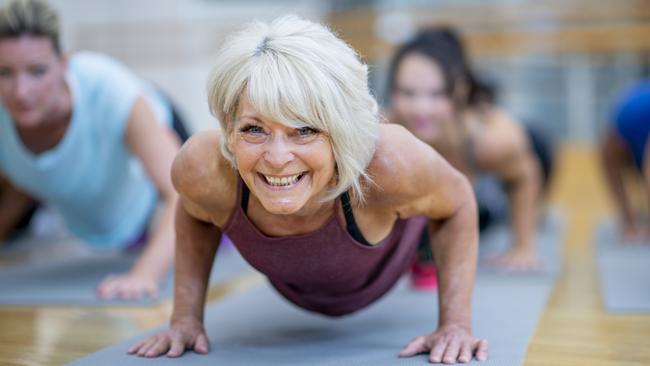
Never has a doctor been more aptly named than Norman Lazarus. At the age of 50 he was unfit and overweight. He was heading squarely towards an old age rattling with pills and replete with any number of the lifestyle-related diseases associated with ageing, from diabetes to heart problems and high blood pressure. Then one day, at lunch with his wife, Lazarus looked down at the bulge hanging over his belt, put down his fork and decided that enough was enough.
He lost weight, started to exercise and embraced life with new vigour. Now 84, he still works as a professor at King’s College London. He has no age-related diseases, is medication-free and has a theory, backed up by decades of research, that how we age is not out of our hands. It is not a question of genes or bad luck. How we age is up to us. When we hit middle age we can choose to age well and wisely, as he did. Or we can sit on the sofa eating pizza and, when we retire, we will reap what we have sowed.
“The way we approach ageing is totally inadequate,” Lazarus says on the phone from his home near London. “Ageing is not a disease and the diseases of ageing have little to do with genetics. The real problems are social and lifestyle.
“If you eat properly and you exercise and you do that for a lifetime, your probability of getting one of these so-called diseases of ageing — I call them lifestyle diseases — is very small. And if you do get one, your probability of recovery is higher.”
Upside? Obvious. Downside? Self-discipline
Lazarus’s approach has the advantage of being blindingly obvious and the disadvantage of requiring self-discipline. In an age in which some people effectively subcontract responsibility for their health to their GP and ward off disaster with a cocktail of pills, Lazarus urges us to eat less, move more and enjoy ourselves. The last part is not just to keep cheerful, but to actively stimulate our brains.
The problem, he thinks, is that for years people have received mixed messages. Magazines promise exercise plans to help us to lose weight.
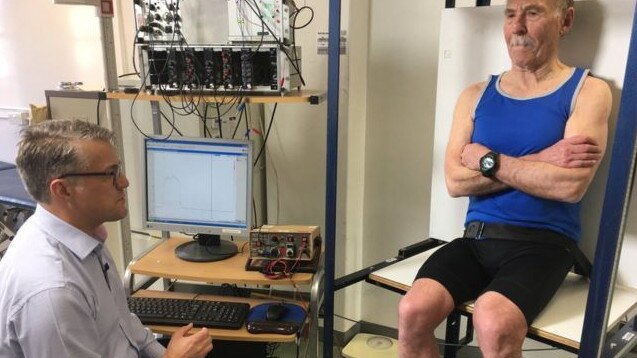
Fad diet after fad diet obscures how the only way to lose weight is to consume fewer calories. Exercise is seen as a penance, not a way of life, and that, Lazarus says, is why we have such a horrifying problem with obesity.
“The idea has somehow been fostered that ‘I do not need exercise, but you are foisting it on me’. You mustn’t think of exercise being imposed on you. You must internally generate the idea that it’s for enjoyment. A dog running down the road isn’t thinking, ‘I’m raising my heart rate.’ It’s enjoying itself.”
Lazarus was born in South Africa. His parents ran a general store at a mine and his mother gradually acquired a reputation for knowing her way round what passed for medicine at the time. Lazarus remembers the treatments as being crude and useless, but listening to her give advice is one of his earliest memories. He qualified as a doctor in South Africa, but moved to the University at Buffalo in New York State to do his PhD. Horrified by the apartheid regime, he was nonetheless aware that protesting against it would put his life, and those he loved, in jeopardy. “I guess it turns out that I’m not a very brave person,” he says with great sadness. “I felt I just had to get away, and so I left.”
He still speaks with a strong South African accent. In Buffalo he met his British wife, June, an immunologist, and in 1970 the couple moved with their two children to Britain. His wife is now 87 and, thanks to watching her weight and being a keen walker, is in the same robust good health as him. His career has encompassed academic research into diabetes, working for the Welcome Trust and Britain’s Department of Health, and, for the past 15 years, the research into ageing at King’s. He jokes that he’s waiting for them to say, “You silly old man,” and boot him out.
The Lazarus strategy
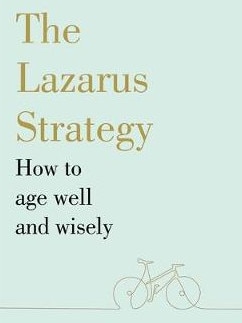
His new book, The Lazarus Strategy: How to Age Well and Wisely, argues that exercise is intrinsic to who we are, vital for our physical and mental wellbeing and the magic bullet when it comes to ageing well. It benefits not just our muscles and lungs, but our immune and hormonal systems, cholesterol levels and organs, thanks to the extra blood being pumped round the body.
In 2018 research conducted by Lazarus and others was published in the journal Ageing Cell. A veteran long-distance cyclist, he found it curious that, having been taught at medical school that age brings with it disease, he and his fellow cyclists — including some who were, like him, in their eighties — did not have these illnesses. The narrative of inevitable decay did not seem to be present. Further investigation found they had the immune systems of 20-year-olds and the body fat of teenagers. Everything about them was in tiptop condition, from their hearts to their hormones.
Intrigued, Lazarus and his colleagues at King’s recruited a group of highly active older cyclists, men and women between the ages of 55 and 79, including himself. Most belonged to a non-competitive long-distance cycling club. They ran a battery of tests, including how efficiently their body was supplied with oxygen when exercising, muscle structure, physiology and mental agility, and compared them with people who did not exercise. They found, he says, that everything was better because they were exercising. On virtually every attribute for which they were measured they scored significantly higher than people of the same age who did not exercise.
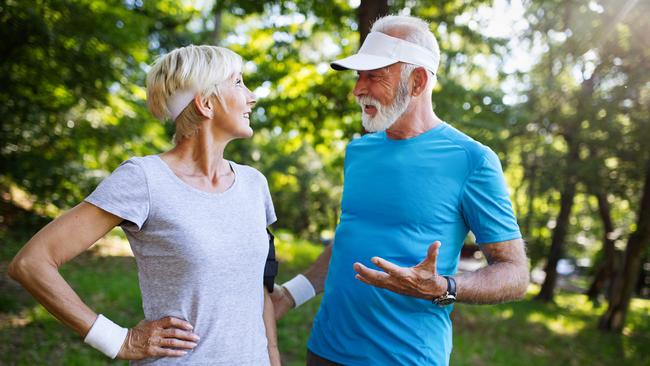
Just go out and move
“An extra surprise finding was that these elderly cyclists’ immune systems had been protected from ageing effects,” Lazarus writes in his book. “It is becoming clear that our behaviour, our physical activity, affects not only our whole body, but also all systems, including the cardiovascular, immune and nervous systems. The effects of being active trickle down to cells and even to hormones. The message is clear. Just go out and move.” He adds that if you exercise you are also more likely to be eating properly and emphasises that it is not necessary to take up endurance cycling: anything that gets you a little bit out of breath, be it brisk walking or ballroom dancing, will help, as long as you do plenty of it regularly.
“A little bit of exercise does you no good,” he insists.

It’s not about weight loss
One of the things that agitates Lazarus the most, however, is the association between exercise and weight loss. “NO, NO, NO, NO, NO!” he shouts down the phone.
“Thirty-five years of research has shown that is incorrect. The amount of energy you use as a normal person exercising is minuscule compared to the mountain of calories you need to move to lose weight.”
If you go to the gym three times a week, he says, and burn about 300 calories a time, it will take years for it to have any impact on your weight. If you are a professional athlete it is a different matter, but for the average person exercise is irrelevant to weight loss. “Eat less to lose weight,” he says. “Exercise to improve your physiology.”
He eats about 1800 calories a day and never, ever snacks between meals. He has porridge for breakfast, a slice of wholemeal bread and a piece of cheese for lunch, then something homemade featuring chicken, fish and organic vegetables for dinner. He does not like pudding or alcohol. He goes to the gym three or four times a week, as well as cycling, and starts every day with corset exercises designed to strengthen his back and stomach and stop him getting a stoop.
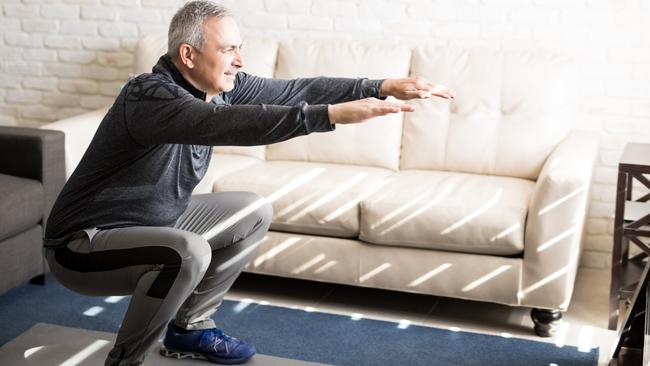
Wake-up call to the middle-aged
A stoop, he says, can be a dangerous thing. It suggests there is an imbalance in your musculature that has altered your centre of gravity and makes you more likely to fall.
He hopes that his book, the result of a lifetime’s work in the field, will be a wake-up call to the middle-aged that might trigger the epiphany he had at that lunch all those years ago with his wife. However, he does not want to preach.
“What I’ve tried to do is give the alternatives. I’ve said, ‘Listen, if you don’t want to do these things, that’s fine. You have to help yourself. But if you don’t, then I assure you, the last 25 years of your life are going to be miserable.’ ”
The diseases you will get, he insists, are not inevitable. They are not diseases of ageing. They are diseases that appear in old age because that is how long it takes for your lifestyle choices to reach a critical point. Yet however old you are, there is something to be gained by adopting his approach.
“If you change your lifestyle, lose weight, eat properly and love an exercise enough to do it regularly, the probability is that you’re not going to get a disease. People say, ‘Oh, you get old, you’re going to get these diseases.’ It makes me want to cry. It’s rubbish!”
The Times







To join the conversation, please log in. Don't have an account? Register
Join the conversation, you are commenting as Logout